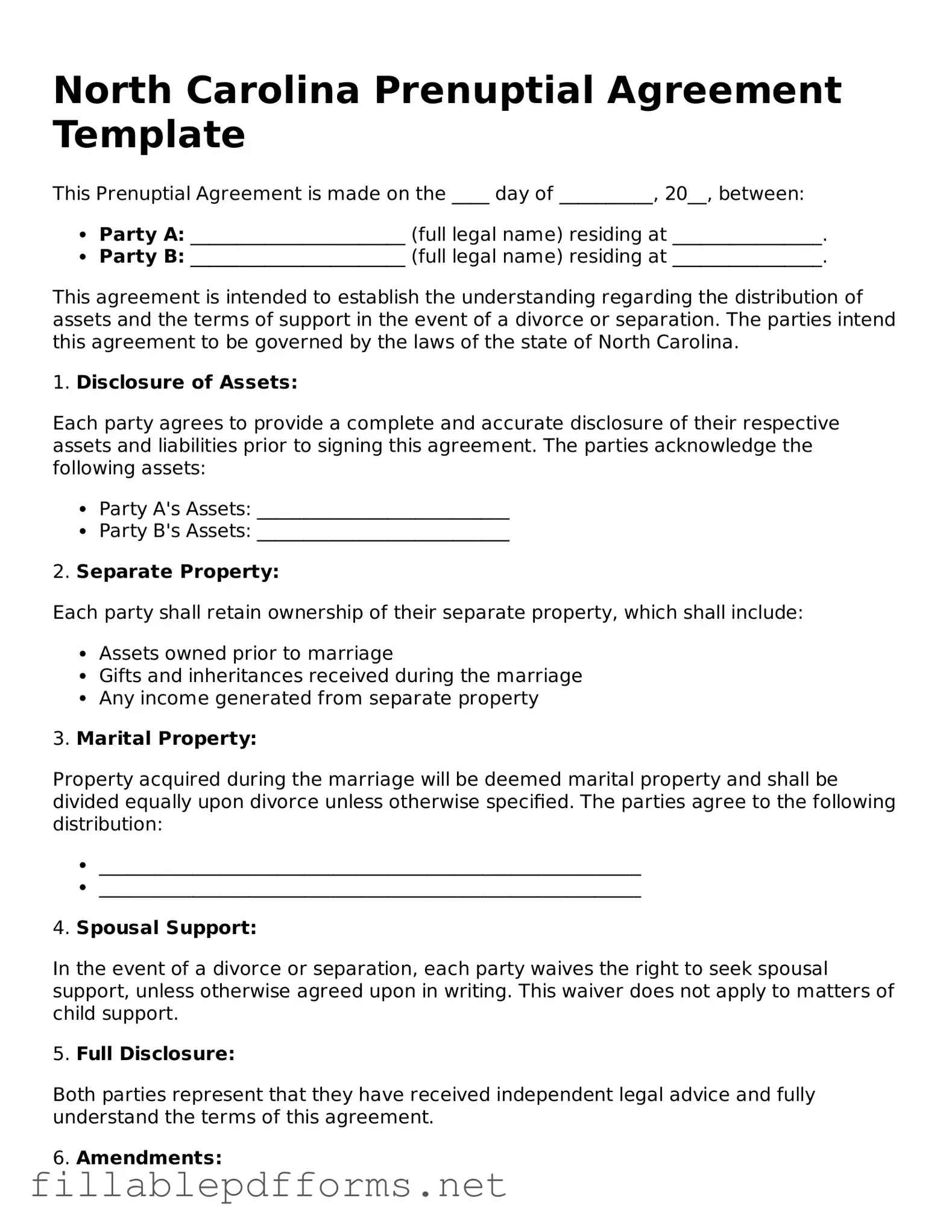Attorney-Verified Prenuptial Agreement Form for North Carolina State
A North Carolina Prenuptial Agreement form is a legal document that couples can use to outline the division of assets and responsibilities in the event of a divorce or separation. This agreement helps to clarify financial expectations and protect individual interests before entering into marriage. By establishing clear terms, couples can foster open communication and reduce potential conflicts in the future.
Launch Editor Here

Attorney-Verified Prenuptial Agreement Form for North Carolina State
Launch Editor Here

Launch Editor Here
or
▼ Prenuptial Agreement PDF
Almost there — finish the form
Complete Prenuptial Agreement online fast — no printing, no scanning.